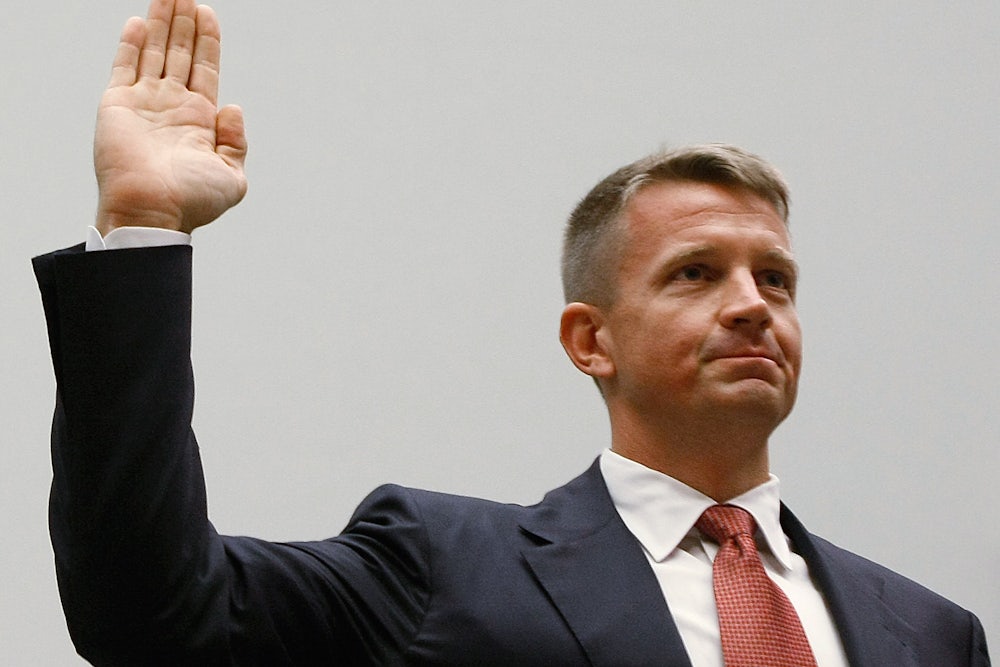NBC is reporting that the president, frustrated by the long military stalemate in Afghanistan, is reconsidering a proposal floated last year to replace American troops in the country with military contractors. This idea is being advocated by Erik Prince, the founder of the controversial security company Blackwater (now known as Academi). In 2007, Blackwater contractors killed 17 civilians in Baghdad, Iraq, in one of the most controversial massacres in the American war in that country. Prince remains well connected in Washington. His sister Betsy Devos is Secretary of Education and the president’s son-in-law Jared Kushner is reportedly a supporter of the mercenary idea. Others in Trump’s orbit, notably Secretary of State Mike Pompeo and Secretary of Defense James Mattis, are said to oppose the idea.
In a 2017 Wall Street Journal article, Prince advocated an “East India Company approach” approach to Afghanistan. The East India company governed large parts of the subcontinent on behalf of the British state for more than two centuries. During their rule, the company was notorious for plundering India and overseeing human-encouraged famines that consumed millions of lives.
Prince’s proposal follows the same basic outlines as the East India Company’s regime: there would be “viceroy” (or “envoy”) who answers to the monarch (or, in this case, President Trump). As NBC reports, “It calls for private contractors and aircraft to aid Afghan forces, with some help from the CIA and the Pentagon’s special operations forces—all of whom would be overseen by a U.S. government envoy for Afghanistan policy who reports directly to the president and is given the authority to coordinate with the Afghan government.”
As former military contractor Sean McFate noted in Politico last August, Prince’s plan is rife with dire implications for global stability. “When anyone can rent a military, then super-rich and large corporations can become a new kind of superpower,” McFate warned. “Worse, mercenaries can start and elongate conflicts for profit, breeding endless war.”
Nor, McFate argued, is it clear that the company once known as Blackwater can avoid massacres in the future:
Prince assures us that nothing will go wrong. To avoid Nisour incidents in the future, he wants to place all mercenaries under U.S. military law, known as the Uniform Code of Military Justice. However, this resolves little. Take, for example, jurisdiction: What happens if a Guatemalan mercenary massacres an Afghan family while on an American contract? Does he go to trial in: a) Afghanistan b) U.S. c) Guatemala d) nowhere? No one really knows, and a good labor lawyer could probably shred the case in minutes.
